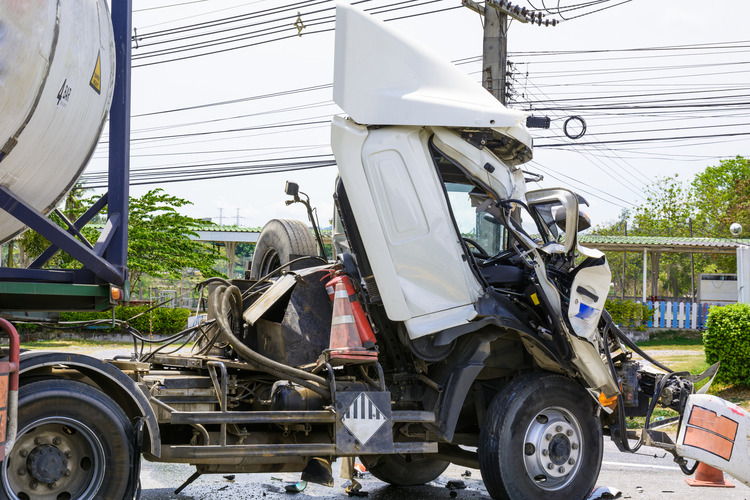
Are you an attorney facing truck accident litigation decisions? Knowing where you stand, what legal strategies can work against high-powered (and highly paid) insurance companies, and how to help your victim get results can be challenging.
At Langdon & Emison, a leading truck accident litigation firm in the U.S., we know how to manage some of the most challenging cases. If you are a truck accident lawyer looking for guidance and direction, we can help you.
Litigating truck accident cases: What are the investigation strategies?
Truck accident investigations require focused and highly specialized strategies to pinpoint potential areas of opportunity. As a trial attorney facing a truck accident case, the success of your case is dependent on the investigation strategies you employ. Our legal team has developed significant strategies that allow us to determine fault, align it properly to those responsible, and prove that our clients deserve compensation.
Determining if driver fatigue was a concern
Driver fatigue is one of the most common underlying causes of trucking accidents in the US, yet proving it is challenging. To investigate whether driver fatigue was an underlying cause of an incident, you need to look at specific elements of evidence.
To identify evidence of fatigue, look at the record of duty to determine if the driver worked hours beyond what is allowable by law for on-duty time. We encourage our clients to establish a fatigue cause and then use accident reconstruction experts to help demonstrate what could have occurred.
In these situations, sending an evidence preservation letter to protect any evidence quickly is critical. It is then necessary to establish the cause of fatigue (hours worked in 24 hours, for example) and any data from driver black boxes that may indicate they were swerving or otherwise driving illegally.
How do we investigate fault beyond the driver and trucking company?
Investigating underlying causes of fault is critical, but not just at the surface level. Investigations need to dig deeper to look at all parties, especially regarding potential equipment failures.
Several entities may be liable, including:
- Supply chain members, including the shipper and broker
- Hidden motor carriers that were involved in the movement of the shipment before the initial crash report
- Trailer owner, or the person that owns or leases just the trailer, which is often separate from the tractor
- Product claims for any crash avoidance technology or other safety equipment that fails to operate as it should
- Product claims for injured truck occupancies, including limitations of electronic stability control in heavy trucks
- Defective front seats, which are very likely to collapse in a rear-end crash, can also be a factor (manufacturers continue to install these even though it is a known risk factor)
Investigating the above areas is critical to developing a theory of liability and strengthening a truck accident claim.
Are there investigations into product failures?
Extensive components in today’s trucks could fail due to manufacturer design defects or poor maintenance and upkeep. Consider all areas listed below when navigating truck ancient litigation matters:
- Defective truck tires
- Collision avoidance technology failures and gaps
- Underride guard protections and failures
- Escape worthiness and crashworthiness claims that are not accurate
- Fuel system defects
- Conspicuity defects
When litigating truck accident cases, investigate any damage to these areas and utilize the make and model of those components to determine if other trucks have suffered similar outcomes. This could indicate there is a sizable risk of manufacturer defect.
Truck accident litigation in a nutshell
Every truck accident is a concern as these vehicles can carry long-term implications for the health and wellness of those they hurt. Exhaustive measures are worthwhile in proving that the truck manufacturer or the truck owner was responsible for the injuries. Consider these tactics as you work to litigate truck accident cases at your firm:
- Build out an effective strategy based on the deposition strategy. Be specific and clear based on locking in the expert’s opinion on the case at hand. Use the information you have to build out a specific strategy.
- Preparation will be critically important here. Go one step further than you may already do. For example, research the opposite expert and their opinion. Look at file materials and data to find gaps. Use prior reports and testimony provided by that expert against them.
- Utilize visuals in a jury trial case. Since trucking accidents can be complex from a technical standpoint, you must ensure that all exhibits stand out and demonstrate the underlying problem.
How to learn more about managing truck accident cases
At Langdon & Emison, our attorneys have worked with many clients facing intense losses and highly aggressive insurance adjusters to help them get the compensation they are owed. This truck accident litigation is only the start of what we can offer our clients.
Reach out to our team to gain insight and support as a trial attorney working through your first significant truck accident cases. Contact us at (866) 931-2115 today for guidance.


